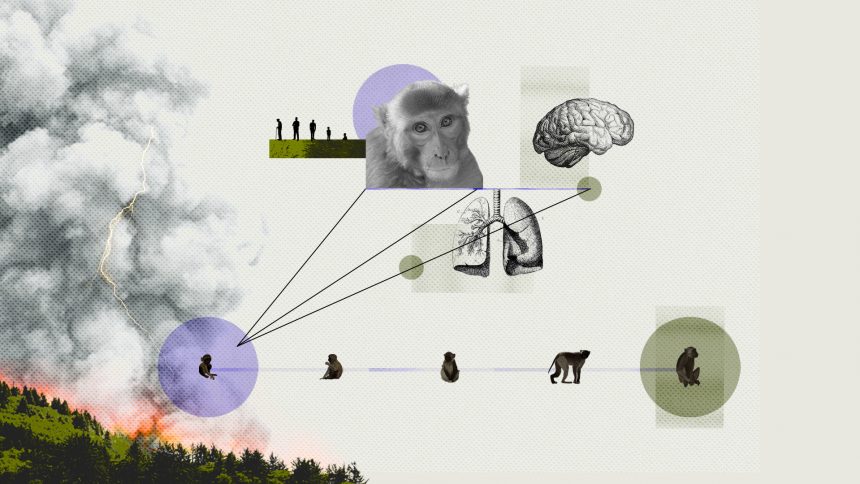“Proof of Concept” is an engaging video series that delves into the world of science and the researchers behind groundbreaking environmental studies. The journey began unexpectedly in 2008, when a series of summer lightning storms ignited wildfires in Northern California. The resulting smoke permeated the air, affecting not only humans but also 50 newborn rhesus monkeys at the California National Primate Research Center.
Lisa Miller, an associate director of research, observed the impact of the smoke on these primates and saw an opportunity to investigate the long-term health effects of early smoke exposure. Through a natural experiment involving two sets of monkeys – one exposed to smoke and one not – researchers were able to uncover surprising results. The smoke-exposed monkeys showed weakened immune responses as juveniles but later developed unhealthy levels of inflammation as adults.
Further studies revealed that the smoke-exposed monkeys had smaller, stiffer lungs and exhibited different sleep patterns compared to the other group. These findings hinted at the potential lifelong health implications of early smoke exposure, mirroring some of the chronic diseases observed in humans.
The research conducted at the primate center highlights the critical role of early environmental exposures in shaping long-term health outcomes. By controlling the environment during crucial developmental stages, scientists aim to pave the way for healthier lives in the future.






